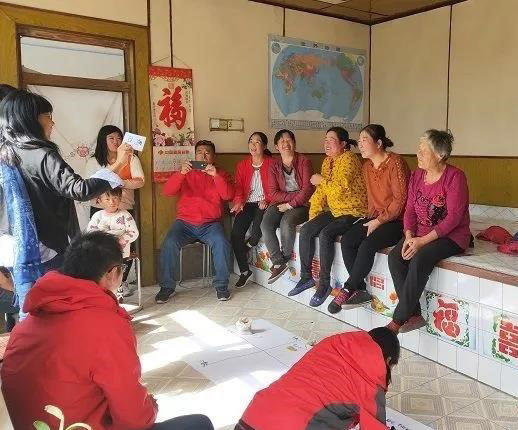Strengthening farmers' seed systems in China

Dr. Yiching Song, Senior Researcher at the Center for Chinese Agricultural Policy, Chinese Academy of Sciences and Dr. Ronnie Vernooy, Senior Scientist at Bioversity International, visited Aohan, Inner Mongolia, with their team to investigate the use of traditional farmer crop varieties.
Bioversity International and the Center for Chinese Agricultural Policy (CCAP), Chinese Academy of Sciences, are working together to strengthen farmers’ seed systems in China. Activities include research on the conservation and sustainable use of agrobiodiversity, the establishment of community seedbanks and community seed enterprises, participatory crop improvement and policy review and advocacy. One of the areas where they work together is Aohan in Inner Mongolia, the birthplace of foxtail millet.This report is reproduced from an article published by the Aohan Government Network on 28 September 2018, edited by Wang Yanchao, and translated by Tian Milin, Center for Chinese Agricultural Policy, Chinese Academy of Sciences.
Dr. Yiching Song, Senior Researcher at the Center for Chinese Agricultural Policy, Chinese Academy of Sciences and Dr. Ronnie Vernooy, Senior Scientist at Bioversity International, visited Aohan, Inner Mongolia, with their team, to investigate the use of traditional farmer crop varieties. They also participated in the first Chinese Farmers Harvest Festival in Aohan, Inner Mongolia.
The delegation first went to Dadianzi village and Gacha village in Xinglongwa town to hold discussions with the farmers. They collected detailed information on crop types, crop varieties, their seed sources and traditional ways of conserving farmers’ landraces. Then they learnt about the local farming culture by visiting the exhibition hall of the Inner Mongolia Prehistoric Museum at Xinglonggou where the Chinese Ancestral God of the Aohan dryland farming system can be found. This site can be seen as the foundation of the protection of Aohan’s traditional farmers’ varieties.
At the opening ceremony of the first Chinese Farmers Harvest Festival in Aohan, Dr. Yiching Song said: “As a Globally Important Agricultural Heritage System, the ancestral rain prayers in Xinglonggou fully embody the spirituality of man and nature. Man and nature are harmoniously connected in the farming culture. It is also an important part of agricultural sustainable development, which should be inherited and carried forward.”

Dr. Ronnie Vernooy said: “The biodiversity is rich in the Aohan dryland farming system. From our discussions with farmers, we learned that there is still a large number of traditional farmer varieties in the households. This precious germplasm is irreplaceable in dealing with soil and climate in semi-arid areas. It is an important guarantee for maintaining sustainable development of agriculture, the development of new varieties of high-quality crops and to solving food security in the future.”
With the support of researchers and staff of non-governmental organizations, the Chinese Academy of Sciences plans to select one or two villages to set up a community seedbank, which provides new ideas for local farmers to use traditional farmers’ variety to improve their quality of life, enhance the appreciation of and attention paid to farmers’ millet landraces and promote the local biodiversity conservation work. The Aohan government departments have been actively collecting and documenting traditional farmer varieties since 2012. In the past six years, staff members visited nearly 500 households village by village and collected 218 endangered farmer varieties, including 92 millet varieties. In order to continuously protect this precious germplasm, the Aohan government set up a traditional farmers’ variety protection base to carry out locally adaptive seeds experiments and select farmer-improved seeds.
For more information, please contact Ronnie Vernooy
- Read the original article here
- Find out more about our work in China
- Find out more about community seedbanks
